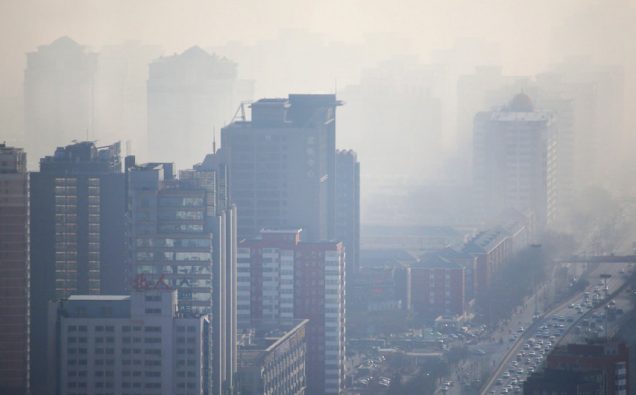
Hurricanes buffeting the U.S. with ferocious winds and downpours, fires raging close to urban centers, fog and smog covering cities in South Asia and China, flooding and sizzling heat in Western Europe, tsunamis hitting Japan and other Far Eastern countries, a sudden cloud burst over the Neelum Valley in Pakistan’s Azad Kashmir and record torrential rains in Western Indian city of Mumbai are among the panic button events that have heightened climate change concerns like never before.
According to a recently published UN Environment Report, even if the world adheres to the commitments set out by the Paris Agreement, winter temperatures in the Arctic are still expected to rise by 3-5°C by 2050.. The consequent thaw of permafrost will threaten four million people and around 70% of today’s Arctic infrastructure, leading to rising sea levels, among other severe consequences.
The UN Report on Climate Change 2019 warns that human activities threaten to take pollution “to the extent that this is now recognized as the biggest single risk to human health worldwide.”
Scientists and researchers are also into a collective overdrive to come up with prescriptions to save the planet against climate change disasters, ranging from common sense solutions – growing trees and reducing carbon emissions – to the use of sophisticated technologies.
A new report, A Global Deal for Nature calls for incorporating a series of desperately needed steps to save diversity on the planet. Other reports say disease, rising temperatures and natural disasters will deprive the world of economic growth potential to the detriment of developing countries and hurt the developed countries and cities.
On the other hand, technological innovation via big data and artificial intelligence are raising hope for some degree of success toward preserving and protecting cities against climate change consequences.
An expert recently explained how the use of technologies could use new technologies to check the downward spiral in cities.
In a piece posted on the World Economic Forum website, Mounir Kabbara says big data, artificial intelligence, blockchain, 3D Printing and mixed reality may offer a viable solution to keep cities clean and smart.
Kabbara, wo heads climatik explains big data can help cities develop “more impactful” climate action plans.
Google, he writes, has started estimating greenhouse gas emissions for individual cities to make use of its data to help climate-concerned local leaders. According to the writer, Pittsburgh, Buenos Aires and Mountain View, California have benefited from data estimates.
Artificial Intelligence may be another savior. Citing the World Economic Forum‘s report Harnessing Artificial Intelligence for the Earth, Kabbara explains ways the AI can help.
“On a city scale, AI can improve overall energy efficiency by incorporating data from smart meters and the Internet of Things (computing devices embedded in everyday objects that enable them to send and receive data) to forecast and predict city energy demand. This would help city utilities providers to optimize energy production, effectively reducing their impact on the climate.”
For instance, the IBM has developed a programme that helps cities plan for future heat waves.
Blockchain, one of the newest technologies can also aid cities in the fight against climate degradation.
It makes easier for governments to keep track of their emissins. For example, the WEC piece says, Blockchain for Climate Foundation is a case in point.
Perhaps more meaningful of all the technological advancement is 3D Printing, which manufacturing in a way that reduces carbon emissions.
This is mainly achieved through raw material waste reduction. Some more advanced applications of 3D printing use recycled materials, putting some of the waste produced in cities to good use. This concept could provide cities with a new way to dispose of their trash while getting paid for it,” the writer says.
















